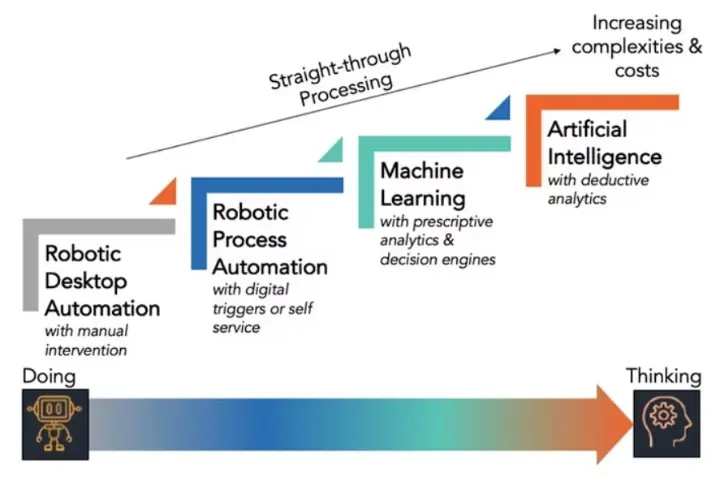Key Takeaways
1️⃣ Different Tools, Different Jobs: RPA bots automate repetitive, rules-based tasks, while AI agents can execute complex, end-to-end workflows autonomously.
2️⃣ Rise of the Agentic Workforce: With cognitive capabilities like reasoning and planning, AI agents mark a shift from automating tasks to automating entire roles.
3️⃣ The Path Forward: The real ROI doesn’t come from choosing RPA or AI — it comes from orchestrating human experts, bots, and agents to achieve shared business outcomes
For years, many organizations followed a familiar playbook: “Start with RPA and get some quick wins.”
The problem? Most got stuck there — hitting a ceiling when RPA alone couldn’t adapt to exceptions, unstructured data, changing interfaces or workflows.
Now, with the emergence of AI agents, enterprises are evolving from task bots to reasoning agents — systems that can reason, plan, and work alongside humans. AI agents don’t just mimic clicks; they understand context, make decisions, and continuously learn.
That doesn’t make RPA obsolete. In fact, bots still excel at stable, high-volume processes. But when combined with AI agents that can navigate the unstructured world we operate in, the result is exponential value. Think of RPA as the brawn, and AI agents as the brain — both vital to enterprise transformation.

👉 The best automation strategies today focus on orchestration — aligning people, bots, and agents to work as one cohesive unit. The question isn’t which comes first anymore; it’s how fast can you integrate both.
#AgenticAI #AutomationStrategy #RPA #AIagents #DigitalTransformation #IntelligentAutomation #FutureofWork #AgenticWorkforce
Should you deploy RPA bots before AI agents?